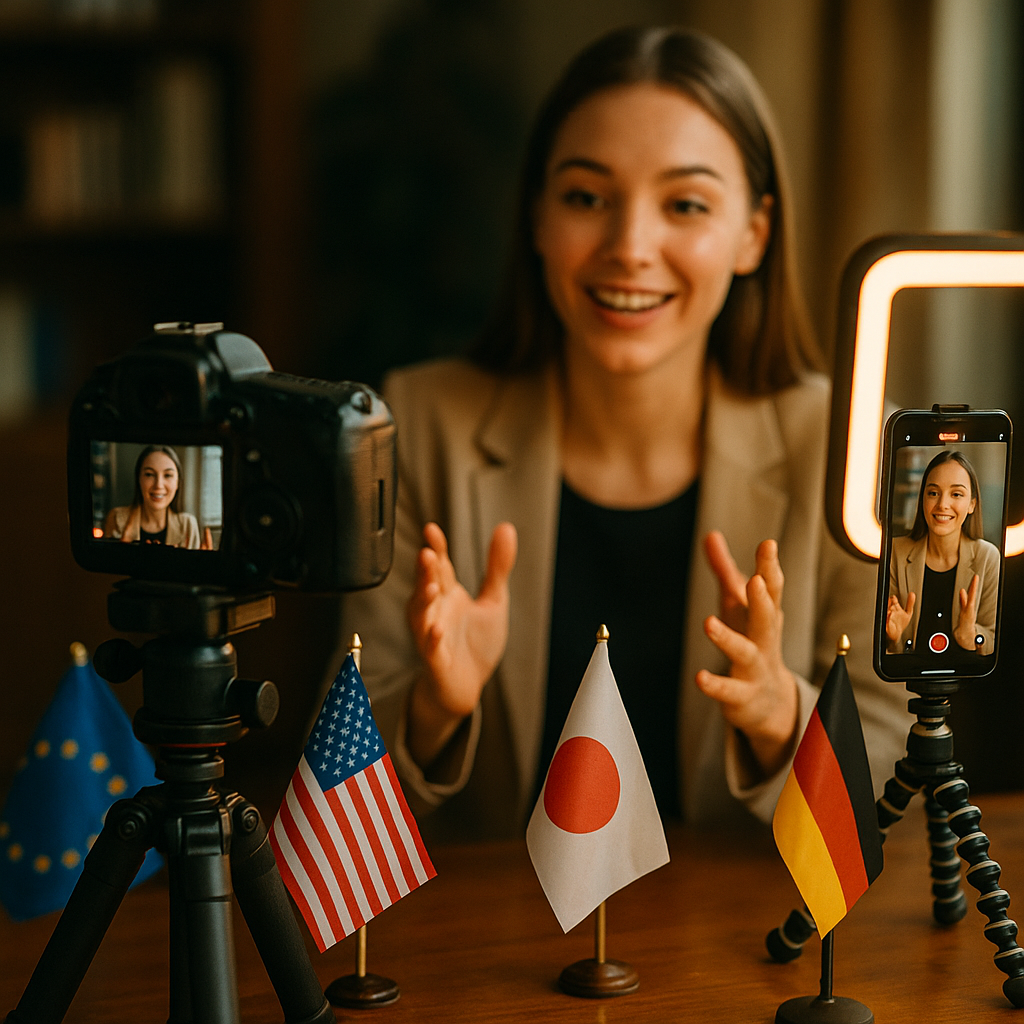Nations are leveraging digital influence more than ever, and a standout example is how a nation-state used influencers for soft power diplomacy. By blending strategy with creativity, governments reshape global perceptions and build relationships beyond traditional diplomacy. Discover how one country pioneered this trend—and what your organization can learn from their playbook.
Soft Power Diplomacy: Defining National Image Through Modern Channels
Soft power diplomacy is the use of cultural, social, and persuasive tactics to elevate a nation’s image internationally. In 2025, governments recognize that influencing global youth and professionals requires more than state broadcasts—it requires authentic digital presence. This includes educational exchanges, cultural content collaborations, and, increasingly, partnerships with social media influencers respected across borders.
Soft power, coined by Joseph Nye, is now supercharged by digital platforms, allowing governments to move beyond propaganda to genuine relationship-building. Instead of rigid messaging, policymakers now adopt influencer marketing strategies to present relatable narratives and inspire curiosity about their country.
Nation-State Influencer Strategy: Choosing Partners and Platforms
The choice of influencers and platforms is instrumental in determining the success of a nation-state’s campaign. In the case study in focus, the government carefully selected influencers who shared cultural affinity, credibility, and sizeable followings among desired demographics.
- Selection Criteria: Regional relevance, audience trust, multilingual ability, and alignment with national values.
- Platform Focus: Instagram, YouTube, and TikTok were prioritized due to their global reach and engagement levels in 2025.
- Content Controls: Influencers received creative freedom within broad thematic guidelines, ensuring authenticity while meeting diplomatic objectives.
This balanced approach fostered genuine storytelling, ensuring the influencers’ content neither felt scripted nor overtly propagandistic—a crucial element for credibility with global audiences.
Digital Public Diplomacy: Campaign Execution and Tactics
Executing digital public diplomacy required meticulous planning and cross-border collaboration. The selected nation-state deployed coordinated campaigns that unfolded in three stages:
- Immersive Experiences: Influencers visited key destinations, participated in cultural festivals, and engaged with local leaders. Advance planning ensured seamless logistics and clear thematic storytelling: food, music, architecture, and innovation.
- Real-Time Engagement: Influencers documented their experiences via vlogs, livestreams, and Stories, fielding questions and engaging with their audience in real time. Hashtags and session takeovers amplified the campaigns’ organic reach and facilitated tracking of impact data.
- Follow-Up Content: Post-trip, influencers created long-form videos and blog posts, sharing nuanced insights about the nation’s values, societal progress, and hospitality. This deepened audience interest and spurred shareable conversations.
Throughout, the government supported participants with research access and logistics while minimizing overt guidance. Data analytics tools measured reach, sentiment, and demographic resonance, enabling flexible adjustments and deeper learning for future initiatives.
Influencer Marketing for Soft Power: Results and Impact Assessment
The results of combining influencer marketing with diplomatic goals were measurable and impactful. Within six months, the nation saw a record increase in positive sentiment and curiosity toward its brand:
- Increased Attention: Hashtags related to the influencer campaigns trended in multiple countries, exceeding 300 million views across TikTok and Instagram Reels.
- Improved Perceptions: Survey data indicated a 27% improvement in perceptions among targeted audiences about the nation’s openness, innovation, and culture.
- Concrete Benefits: Boosts in tourism inquiries, student exchange applications, and collaborative projects between local creators and foreign talent were directly attributed to influencer content.
Importantly, academic and government feedback highlighted that the authenticity of the influencers’ voices—rather than just production value—drove these outcomes. The campaign demonstrated how influencer marketing for soft power can generate tangible diplomatic returns.
Building Long-Term Relationships: Lessons for Government and Brands
This case study provides actionable insights for other governments and large organizations aiming to enhance soft power online:
- Prioritize authenticity and clear alignment between influencer audiences and diplomatic objectives.
- Invest in cross-cultural training for both content creators and government liaisons to prevent misunderstandings.
- Allow for creative freedom within agreed parameters, fostering trust and long-lasting relationships rather than one-off transactional campaigns.
- Monitor long-term impact, tracking data months after a campaign for policy refinement and improved ROI.
Organizations outside government—such as NGOs or tourism boards—can borrow these lessons for their own international communications strategies, emphasizing storytelling rooted in lived experience.
The Future of Influencers in Soft Power Diplomacy
Looking forward, influencer marketing is set to become integral to nation branding and soft power diplomacy. As digital natives rise in influence, governments will compete not just in policy, but in narrative. The most successful states will be those that align their diplomatic strategies with evolving social media trends—while prioritizing trust, transparency, and education over one-way broadcasting.
In 2025, influencer-driven soft power is no longer a novelty—it’s an essential pillar of foreign policy. As tools for analysis and content collaboration mature, expect ever-more sophisticated and meaningful partnerships between governments and online creators worldwide.
Ultimately, this case study illustrates that how a nation-state used influencers for soft power diplomacy is not simply a story of marketing innovation—it’s a blueprint for contemporary international engagement, with lessons relevant to any forward-looking organization.
Frequently Asked Questions
-
What is soft power diplomacy?
Soft power diplomacy uses cultural, social, and persuasive methods to shape international perceptions and foster goodwill, rather than relying solely on political or military means.
-
How do governments choose influencers for soft power campaigns?
Governments select influencers based on credibility, audience reach, alignment with national values, and their ability to communicate authentically with the target demographic.
-
What benefits do influencer campaigns yield for nation-states?
Benefits include improved country perception, increased tourism, international collaborations, and heightened interest in cultural or educational exchange programs.
-
Why is authenticity important in these campaigns?
Authenticity builds trust and engagement. Audiences respond positively to real experiences rather than scripted promotion, making soft power efforts more effective and credible.
The strategic use of influencers for soft power diplomacy offers measurable global benefits. By prioritizing authenticity, careful partner selection, and digital storytelling, governments can reshape perceptions and forge lasting international connections in the digital era.
